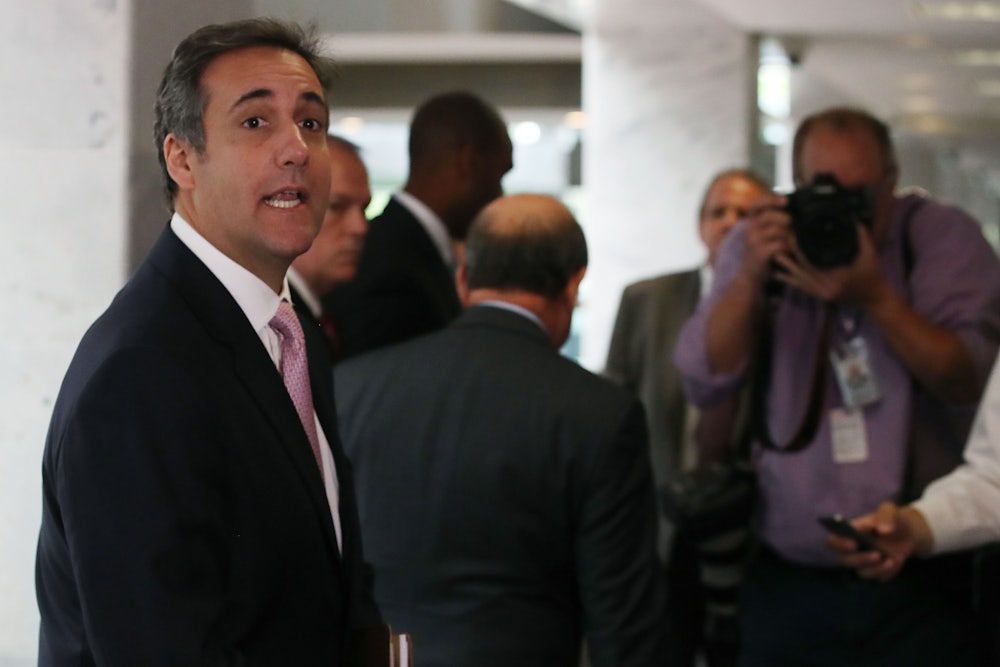The president’s personal lawyer is squaring off against the porn actress, whose real name is Stephanie Clifford, over a non-disclosure agreement she signed two weeks before Election Day in 2016. In exchange for her silence on an alleged sexual encounter a decade earlier between Clifford and Donald Trump, Cohen apparently paid Clifford $130,000 from his personal funds.
Clifford sued Cohen last month in an effort to break the agreement, arguing that it wasn’t a legally binding contract because Trump himself had never signed it. (He is not named in the agreement, which instead refers to a pseudonymous individual named “David Dennison.”) David Schwartz, Cohen’s lawyer, told CNN in interviews on Wednesday night that there’s a good reason for that signature’s absence: Schwartz says that Cohen never told Trump about the agreement with Clifford before it was struck.
“So, can you say unequivocally that the president was never in any way aware of the $130,000 of the agreement itself?” CNN anchor Erin Burnett asked Schwartz. “The president was not aware of the agreement,” Schwartz replied. “At least, Michael Cohen never told him about the agreement, I can tell you that.” Schwartz also said Cohen crafted the agreement to be between Clifford and the limited-liability corporation he had set up to facilitate the deal, with an option to include Cohen’s client, “David Dennison,” as well.
“That’s why he left that signature line [for Dennison/Trump],” Schwartz said. It would leave “the option open to go to him. [Cohen] chose not to.” Lawyers quickly noted that some provisions in the agreement clearly seem to require Trump’s assent, however, and that without such assent, the contract may be unenforceable.
"Each Party acknowledges that [Stormy] is executing this Agreement in reliance" on *Trump* releasing certain claims he has against Stormy.
— Susan Simpson (@TheViewFromLL2) March 29, 2018
Michael Cohen can't offer that. EC LLC can't offer that either. Only Trump can.
So if Trump ain't in the agreement, THERE IS NO AGREEMENT.
That may be the least of Cohen’s problems, though. Schwartz’s description of events only intensifies campaign-finance questions. Watchdog groups have raised concerns that Cohen’s $130,000 payment to suppress damaging information about a presidential candidate counts as an in-kind donation to Trump’s presidential campaign. If Trump didn’t reimburse him, then the value of Cohen’s payment clearly exceeds the federal cap on individual donations.
